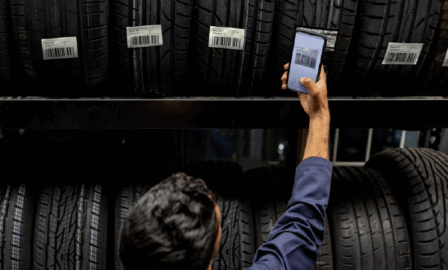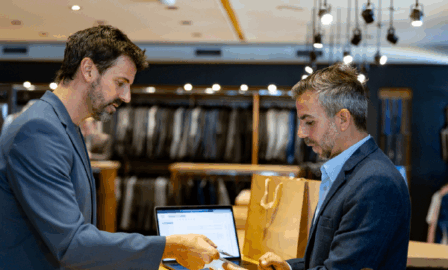What Retailers Should Know About the Metaverse and Commerce in 2022
The metaverse has gotten a significant amount of attention since the October announcement of Facebook rebranding to Meta. While the metaverse revolution hasn’t happened quite yet, retail organizations should be taking some steps to learn how this emerging technology can impact and help their business.
What is the Metaverse?
The metaverse is a conceptualized shared space that allows people to interact virtually, in parallel to the physical world. In what Mark Zuckerberg called the “embodied internet”, users employ a new set of technologies such as augmented reality (AR), virtual reality (VR), and existing tools to engage with content and brands. While this is currently used mostly in virtual gaming platforms (Fortnight, Roblox, and others), there are growing metaverse uses that can impact day-to-day life.
Microsoft Mesh is a new technology designed to build on the use of Microsoft Teams to more fully immerse remote working employees in a virtual office environment. Leveraging a mix of AR and VR tools, users can meet in virtual meeting rooms, design products in 3D, and engage with each other like they are working in the same space even if they are miles apart.
Virtual concerts and events are another way the metaverse is moving into the mainstream. Horizon Venues hosts comedians, musicians, and even NBA basketball games in a virtual world where attendees can interact with each other and view the event as if they were present.
Retail and Commerce in the Metaverse
Commerce within the metaverse is well established, going back to the early 2000s. An early metaverse that is still around today, online platform Second Life provides users the ability to create their own digital products and then sell those to other users for in-game currency that can be exchanged into US dollars. This same mechanism exists in most metaverse products today.
Retailers can see this area as a new selling channel and a place to engage with customers. They can develop digital products for sale directly in a metaverse, or they can create hybrid products where the digital sale in the metaverse includes a physical product that is shipped to a customer’s home. Luxury retailers can take advantage of blockchain technology and develop non-fungible token (NFT) products to prove authenticity.
Beyond just the products, retailers can take advantage of this technology to provide experiences and further connect with customers. Car retailers could create virtual driving experiences to show off the new features of their new model. Nike engaged with Roblox to create Nikeland, an interactive experience where users in the Roblox metaverse can participate in activities, engage with the brand, and buy Nike virtual products. Since its release in September 2021, Nikeland has had 9.8M+ visits.
The Future of Retail in the Metaverse
While the metaverse has been drawing headlines and a lot of attention from the news, there is no impetus for retailers to get involved immediately. Access to virtual environments and metaverses are increasing, but user counts are only a fraction of traditional commerce channels. Fewer than 60 million US adults use VR monthly, and 93.3 million use AR, which pales in comparison to nearly 300 million smart phone users. Roblox and Fortnite have about 47.3 million and 22.5 million active daily users respectively, but that still is limited compared to Facebooks 1.93 billion active daily users and Twitter’s 206 million active daily users.
However, growth in this space is rapidly increasing. More virtual reality headsets, faster internet speeds through 5G, and other technological advancements are driving 10x user growth between 2020 and 2021. Retailers should be developing strategies and building metaverse capabilities into their technology roadmaps to ensure that they are not left behind when these experiences become table stakes. Leading retailers like Nike and luxury brands like Louis Vuitton have recognized the possibilities in the metaverse and have begun selling merchandise and engaging early adopters.
Additional interest in technologies like Web3 and non-fungible tokens (NFTs) can only accelerate the growth of metaverses and increase interoperability in the space. Retailers must be watching closely and strategizing how to best leverage it in the long term.
Contributions by Sahab Grover



